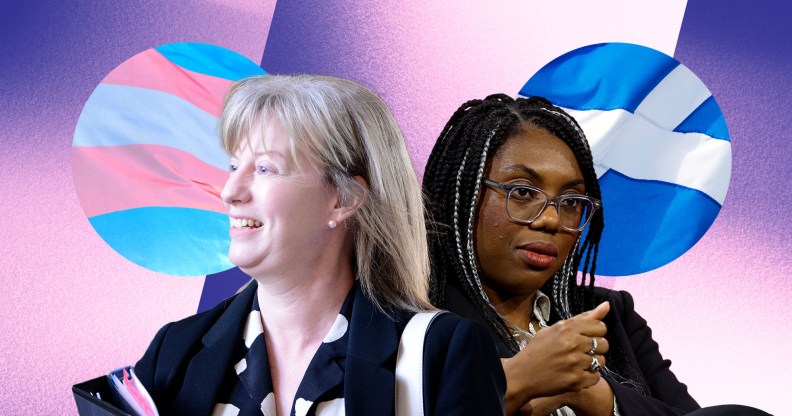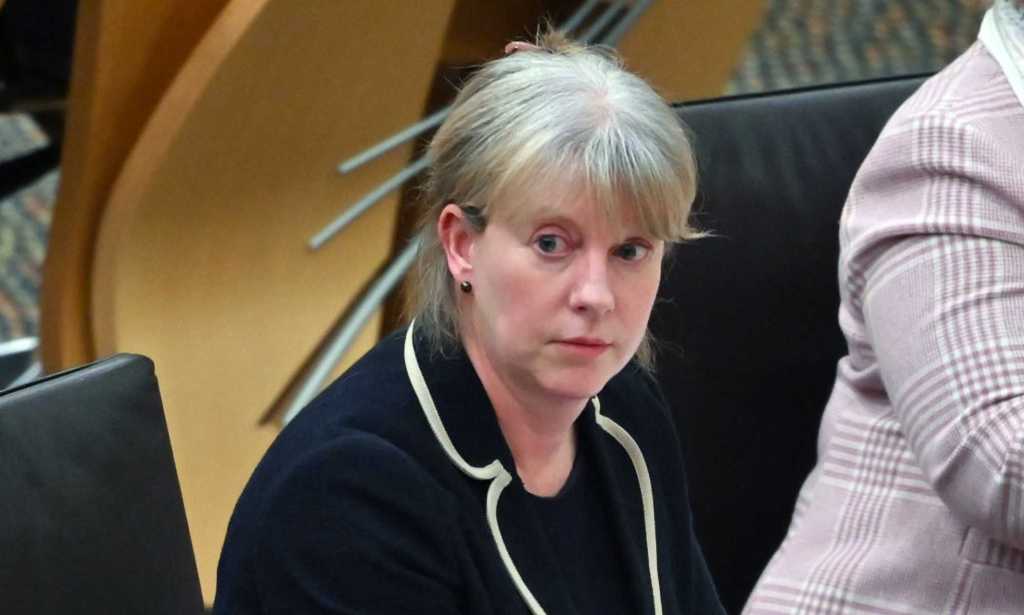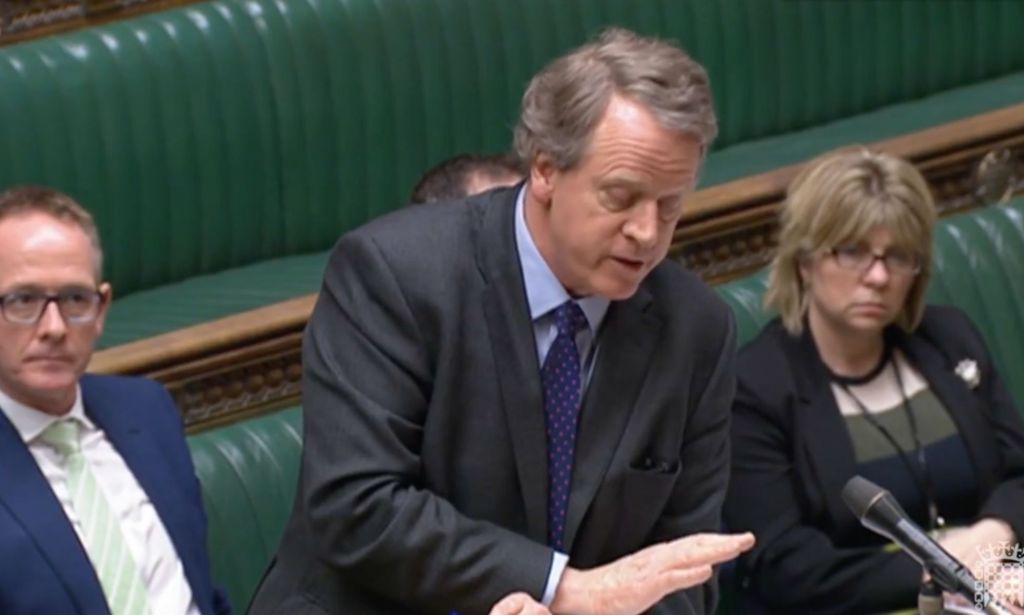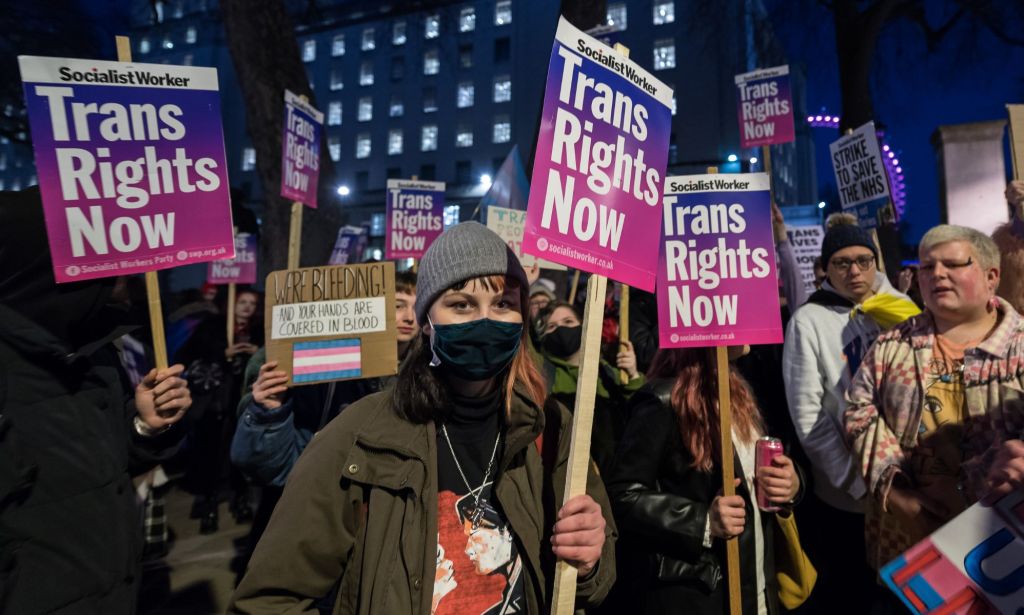Tories blindsided Scotland with ‘dangerous’ attack on gender reform bill, says Holyrood minister

Shona Robison met with Kemi Badenoch shortly before Scotland passed its gender recognition bill. (Getty)
Scotland’s social justice secretary Shona Robison says the UK government had six years to air grievances on its gender recognition reform – and didn’t.
Robison told PinkNews that the Tories’ decision to veto Scotland’s democratically passed reforms was “entirely political”, and came without warning.
The Scottish parliament held its final vote on the Gender Recognition Reform bill in December, more than six years after Nicola Sturgeon first pledged to simplify the system by which trans people can update their birth certificates.
The bill began development in 2016, only to be blocked by Westminster over alleged concerns it would interfere with the UK Equality Act. According to Robison, at no point during those six years did the Tories warn Scotland that changes would be needed for it to comply.
Robison said that she wrote to the UK women and equalities minister, Kemi Badenoch, in October to discuss the legislation.
She didn’t hear back from Badenoch’s office until December, at which point a meeting was “hastily arranged”.
Badenoch was among the first to publicly criticise the bill’s passing. But Robison said that “at no point [during their meeting] did she suggest specific amendments”.
“She expressed some general concerns that were out of the briefings from other organisations, but at no point did she ask for specific amendments or indicate that there was a Section 35 order being planned,” she added.
Their meeting occurred just days before the bill went to its third and final stage in parliament. It was eventually passed on 22 December, and almost immediately, the UK government started talking about blocking the bill under Section 35 of the Scotland Act.

Within hours, Badenoch issued a statement on Twitter voicing “concerns” about supposed interference with the Equality Act – legal experts have said these concerns are not valid.
After seeking legal advice, Scottish secretary Alister Jack announced on Monday (16 January) that the UK government would use Section 35 for the first time ever to stop the bill going for royal assent.
Robison said that in her opinion, “this is entirely a political decision from a government that has a track record of pushing back on people’s rights, whether it’s the right to strike or human rights”.
“This is wholly in line with that position and also the desire to try to undermine devolution,” she added.
“This is a very serious moment for the Scottish parliament and it’s important that we all stand together – those parties and individuals who voted for this bill – to be very clear to the UK government that this is just not acceptable.”

Nicola Sturgeon has indicated that the government will seek a judicial review of the decision, and legal experts are predicting the legal battle will most likely end up in the Supreme Court.
The Scottish government will “take whatever action we need to take to defend the democratic decision” of its parliament, according to Robison.
“Officials have worked night and day to get this bill into shape – lots of amendments, some safeguards added in that were worked on in great detail – so it is extremely frustrating that this is where we now find ourselves on the whim of the secretary of state for Scotland.”
Scottish gender reform row highlights threat to devolution, says Shona Robison
The controversy strengthens the argument for independence – but it should also be a cause for concern for those who support devolution, according to Robison.
“If this becomes a precedent and it becomes normal, what else is going to be undermined by the secretary of state and the UK government?”

She added: “It’s a very dangerous path, so I think whether you support independence or devolution, we need to draw a line in the sand here. This is not on and we will fight this with every power that we have.”
Addressing the trans community specifically, Robison said: “We will stand with you.
“We understand that you will be very disappointed and concerned about this move but we will do absolutely everything we can to defend Scotland’s democratically elected parliament and [ensure] this bill finally makes it to the statute book.”
When approached by PinkNews, a UK government spokesperson said it “raised a number of concerns relating to the impact of the Scottish government’s proposals” before the legislation was passed.
“The secretary of state for Scotland has made an order under Section 35 of the Scotland Act 1998, preventing the Scottish Parliament’s Gender Recognition Reform (Scotland) Bill from proceeding to Royal Assent.
“This was done after thorough and careful consideration of all the relevant advice and the policy implications. This legislation would have an adverse impact on the operation of Great Britain-wide equalities legislation.
“Transgender people deserve our respect, support and understanding. Our decision is about the legislation’s consequences for the operation of GB-wide equalities protections and other reserved matters.”

